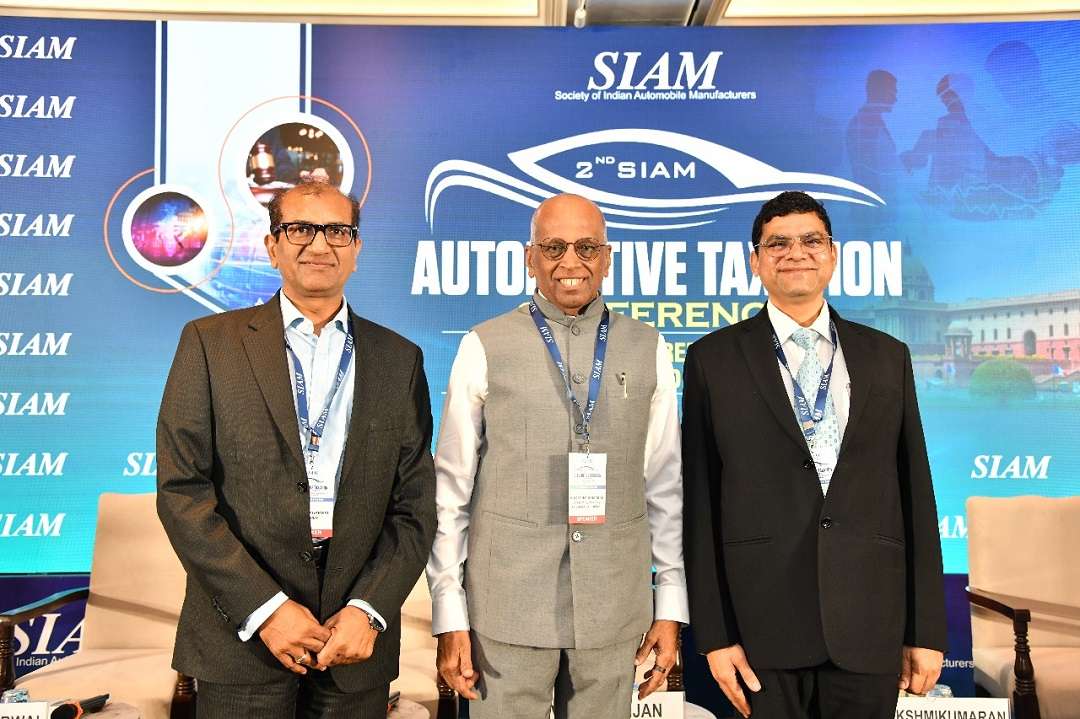The Society of Indian Automobile Manufacturers (SIAM) convened the 2nd SIAM Automotive Taxation Conference 2025 under the theme “Drive with Policy Reforms and Innovation to Build Viksit Bharat.” The event brought together key government officials, industry leaders, and tax experts to discuss critical issues surrounding the Indian automotive sector’s taxation landscape.
The discussions focused on how tax policies can foster the growth of the automobile industry, ensure greater compliance under GST, and explore how technology can be leveraged to simplify regulatory processes. Shashank Priya, Special Secretary & Member (GST, CX&ST), CBIC, Ministry of Finance, Government of India, addressed key policy initiatives, stating, “The Government is working towards GST rate rationalisation to minimise disputes and strengthen consumer confidence. Efforts are also underway to accelerate refunds under the inverted duty structure, increase auto-filled data availability, and streamline the reconciliation of credit notes within set timelines.”
Other senior officials, including Vivek Ranjan (Member – Tax Policy & Legal, CBIC), Bhaskar Goswami (Joint Secretary, CBDT), and Nisha Gupta (Senior VP, GSTN), also shared insights on ongoing reforms aimed at improving ease of doing business for the automotive sector. V Lakshmikumaran, Founder and Managing Partner, Lakshmikumaran & Sridharan Attorneys, commented “The automobile industry plays a vital role not only in mobility but also as a major source of employment, both directly and indirectly. Its progress under the ‘Make in India’ initiative reflects the aspirations of 1.4 billion Indians.”
Representing the industry, SIAM leaders — Rajesh Shukla (Chairman, SIAM Taxation Policy Group and Head – Indirect Taxation, Tata Motors), Rajeev Goyal (Chairman, SIAM Taxation Procedural Group and CFO – Auto & Farm, Mahindra & Mahindra), and Sanjeev Agarwal (Chairman, SIAM Direct Tax Group and Head – Taxation & Customs, BMW India) — emphasised the opportunities for refining tax structures and reducing procedural bottlenecks.
Arnab Roy, CFO, Maruti Suzuki India Ltd, noted “GST has significantly improved compliance and brought clarity to business planning. However, stability and predictability in tax policy are essential to support long-term investments and the automotive industry’s shift towards sustainable mobility.” Vivek Anand, CFO, Hero MotoCorp Ltd, added “India has made considerable progress in tax reforms over the past decade. The next step should focus on rationalising GST slabs and addressing classification and input credit issues to reduce compliance burdens.” The event reaffirmed SIAM’s ongoing efforts to collaborate with policymakers and regulators in shaping a taxation environment that supports innovation, competitiveness, and sustainable development across the automotive value chain.
The Society of Indian Automobile Manufacturers (SIAM) is the apex body representing leading vehicle and engine manufacturers in India. Registered under the Societies Registration Act, 1860, SIAM operates as a non-profit organisation. Its mission is to support the growth and contribution of the automotive industry to India’s economy, promote responsible business practices, enhance environmental sustainability, and ensure road safety. Recognised for its charitable purpose under the Income Tax Act, 1961, SIAM plays a key role in shaping policy dialogue and industrial progress in the country.







